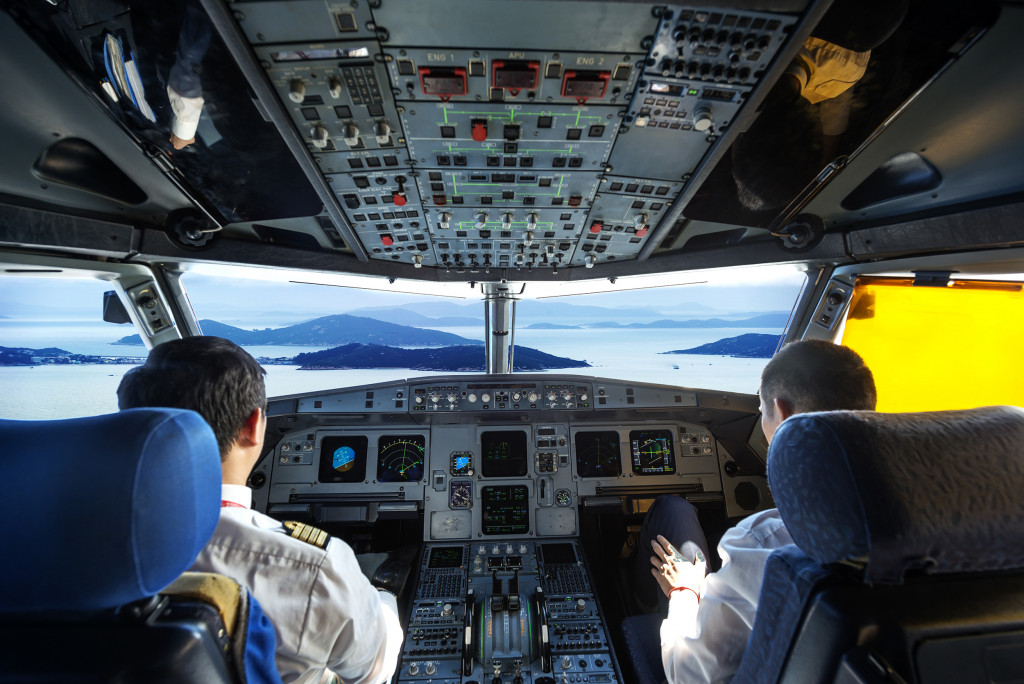Owning a company aircraft can be a fantastic way to save time and money while ensuring that you always arrive at your destination on schedule. However, it is crucial to understand that there are certain aspects of owning an aircraft that not everyone may tell you in advance. Here are some things that every business owner should know before they buy their own plane.
Maintenance Costs
Perhaps the most critical factor to consider when purchasing an aircraft is the cost of ongoing maintenance and upkeep over the long term. It is essential to budget for any potential repair costs or other expenses associated with the aircraft, as these can significantly impact your bottom line if not adequately accounted for.
Additionally, regular inspections performed by certified mechanics will help ensure that your aircraft remains safe and in top condition. For example, many aircraft owners choose to have their planes serviced every 100 flight hours to keep them running smoothly and prevent any major issues.
In addition, you should also be aware of potential additional costs, such as storage fees, as these can add up quickly if not accounted for in advance.
Ground Support Equipment
Another important aspect of owning a company aircraft is having the right tools and supplies needed for the safe operation of your planes, such as tow bars, loading ramps, ground power units, fuel tanks, and more.
However, most people neglect ground support equipment maintenance, which includes inspecting, servicing, and replacing any of the tools and supplies mentioned above. This is essential to ensure everything is functioning correctly, so it’s important to remember to budget for these costs.
It is crucial to have access to reliable ground support equipment in case of an emergency. Not only does this help to ensure the safety of your aircraft, but it can also save you time and money when it comes to repairs.
Insurance Coverage
Just like any other vehicle, it is vital to ensure your company aircraft is properly insured to protect you from liability or damage risks in case of an emergency or accident. Be sure to shop around for coverage options to find the best price for the level of protection you need.
For instance, some insurance companies may offer higher coverage limits for aircraft that are used more frequently, so if you anticipate using the plane often, it is worth looking into this option. This is because they may consider you a higher risk and will likely charge more for the coverage.
Moreover, it is also important to remember that your aircraft’s insurance rates can vary due to various factors, such as its make and model, the plane’s age, the number of passengers it carries, and more.

Airworthiness Certificates
If you plan on using your company aircraft in commercial operations, then it will be necessary to obtain airworthiness certificates from both local aviation authorities and the Federal Aviation Administration (FAA).
These certificates are required to ensure that all safety standards are met before flying passengers or cargo in your plane. Furthermore, you will also need to ensure that any modifications or repairs you make to the aircraft are documented and approved by the FAA.
Finally, it is also important to remember that your company aircraft needs to be registered with the FAA for it to operate commercially and legally.
Fuel Costs
Depending on the engine your company’s aircraft uses, fuel costs can vary significantly from one model to another. It is also important to consider how much fuel will be needed during each flight to remain within budget while still providing enough power for takeoff and landing procedures.
For starters, you should research the fuel consumption rates of various aircraft models and compare them to identify which best suits your needs. It is also important to factor in any other expenses associated with fueling the plane, such as storage tank rentals or fees for refueling services at airports.
If possible, it is a good idea to purchase fuel in bulk so that you can take advantage of any discounts offered by suppliers.
Pilot Training
Even if you have experience flying smaller planes, it may be necessary for you or another pilot on staff to undergo specialized training for larger corporate jets before taking off into the skies with passengers onboard—especially if those passengers include high-profile individuals such as customers or executives from other companies!
Make sure never to skimp when it comes to safety and training protocols by ensuring all pilots have received proper instruction before flying any corporate jet under their command. They should be familiar with advanced navigation techniques, emergency procedures, and other specialized skills required for the plane’s safe operation.
In addition to training pilots on the proper use of aircraft systems, it is also important to make sure everyone onboard knows how to properly use any onboard safety equipment, such as life preservers or oxygen masks.
Owning a company aircraft can provide many benefits, but there are also some potential risks involved with this type of investment—especially since these planes typically require more maintenance than traditional cars or trucks do! Before signing up for anything big, make sure you understand everything about owning an aircraft—including insurance coverage, airworthiness certificates, fuel costs, and pilot training requirements—so that you can maximize its value while minimizing potential headaches down the road! With this information under your belt, you’ll be well prepared for liftoff.

